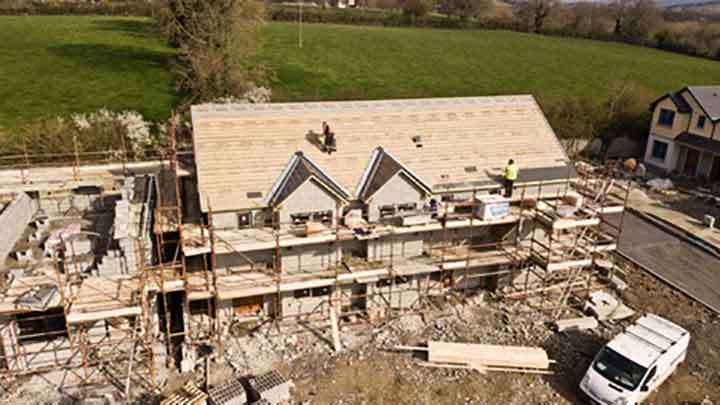
Modified Bitumen Roofing was first developed after WWI in Germany. The roofing material consists of asphalt and mineral mix. The liquid-applied roofing material is applied at high temperatures that form a durable membrane.
The roofing material has a unique appearance and texture. It is getting popular as a Huntsville roofing of choice due to its excellent performance capabilities. In this blog post, you will learn about the pros and cons of modified bitumen roofing.
Pros of Modified Bitumen Roofing
Let’s go over some of the advantages of opting for modified bitumen roofing.
1. Suitable for High Traffic Areas
Modified Bitumen is suitable for high traffic areas. The membrane is installed in layers that can withstand heavy traffic.
The roofing membrane can withstand even greater foot traffic with a granulated cap sheet. They can also be treated for patio and garages due to their high durability.
2. Easy to Install in Tight Corners
The roofing material comes in rolls that are between 36 to 39 inches. You can easily install the roofing material in tight spaces. It is perfect for roof installation in spaces such as flat rooftops and balconies. Installing the material is much easier than thermoplastics or other materials that come in rolls of up to 10 to 12 feet.
3. Greater Thickness
Most modified bitumen systems have high thickness. 2-ply roofing having a granulated cap sheet has a thickness of about 240 MILS. In comparison, a thermoplastic roof membrane has a thickness of up to 60 MILS. The greater thickness of the material makes it durable and long-lasting.
4. Easy to Repair
Repairing modified bitumen roofing is easier since it is compatible with the common asphalt roofing. Maintenance personnel can easily patch leaks using off-the-shelf roof repair solutions. This results in less cost of repairs resulting in cost savings.
5. Fire Resistance
Modified bitumen roofing also has high fire resistance. The roofing material has a rating of Class A. The fire resistance of the material will last for up to 10 years. You can also resurface the roofing to maintain a fire-resistance rating for longer periods.
Cons of Modified Bitumen Roofing
1. Vulnerable to Impact Damages
Modified bitumen roofing is vulnerable to impact damages. The roofing material can get damaged due to the impact of falling branches. Hair can also damage the modified bitumen roofing.
2. Heat Damage during Installation
The roofing material can also be damaged if not installed properly. The roofing material must not be installed under the direct rays of the sun. Direct sunlight will damage the roofing layers during installation.
4. Release of Harmful Fumes
Modified bitumen roofing must be installed by a professional. This is important since the roofing material releases harmful gasses when installed using the heated torch method.
Experienced technicians will use proper installation methods. They will also take precautions to avoid exposure to harmful fumes during installation.
5. Life Span
Modified bitumen does not have a large lifespan. It has one of the lowest life spans of Huntsville roofing materials. You need to reroof the material after every 10 to 20 years. Reroofing is necessary when the material gets damaged due to impact or exposure to direct sunlight.
6. Water Damage
The roofing material can get damaged quickly when water pools on the surface. That is why the roofing material is not recommended in areas that receive a lot of rain and snow.
Final Verdict
Modified bitumen roofing has benefits and drawbacks. You must understand the advantages and disadvantages. This is important to ensure that you buy the best roofing material that meets your requirements.
The high insulation and reflectivity make it an excellent Huntsville roofing choice. But the roofing material must be installed properly and reroofed to ensure the proper protection against weather elements.

